Top 10 Argumentative Essay Topics for Middle School and Samples
High school students love to debate! Top argumentative essay topics for middle school and samples provide perfect practice. From animal testing to 3-day ... read more...weekends, these fun options help students express their views convincingly. Explore and spark interest in your classroom through the article below!
-
Essay topic: Should cell phones be allowed at school?
Answer:
Cell phones, those handy gadgets we can't seem to live without. The big question is: should they be allowed at school? Some say yes for emergencies and learning, while others argue they distract. Let's dive into this debate and find out!
Cell phones can be super useful in school. First, emergencies happen, right? Having a cell phone means we can call for help quickly. Also, phones are like tiny libraries! We can use them for research and learning stuff we didn't know before. Plus, learning apps and educational games make studying more fun.
But wait, there's another side. Some say cell phones are troublemakers in the classroom. They ring when they shouldn't and distract everyone. It's hard to focus when your friend is texting you about the latest gossip. Also, not all kids use phones responsibly. They might sneak a game when the teacher isn't looking.
Now, what about kids who don't have phones? It's not fair if some can use them, and others can't, right? This could create a 'phone gap' and make some students feel left out.
In the end, the cell phone debate is a tough one. On one hand, phones can be lifesavers and amazing tools for learning. On the other, they can cause distractions and be unfair to those without them. Maybe, the answer is finding a balance, using phones for learning but keeping them tucked away during class. That way, we get the best of both worlds! What do you think? It's a tricky question, but finding the right balance might just be the key.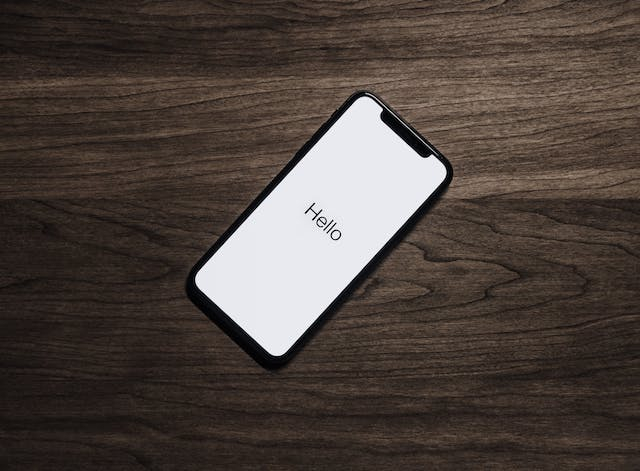
Photo by Jess Bailey Design via pexels 
Photo by Jess Bailey Design via pexels -
Essay topic: Should gym class (physical education) be a requirement?
Answer:
Imagine a gym class filled with laughter, sport, and a little sweat. But is it fair to make gym class a must-do in school? Some say it's important for health and teamwork, while others argue it can be embarrassing or unnecessary. Let's jump into this debate and see where we land!
First off, gym class is like a superhero for our bodies. It keeps us moving and healthy. Running, jumping, and playing sports are like magic tricks that make our hearts strong. It's like a secret mission to fight off the sneakiest villain, unhealthy habits! Plus, gym class is a teamwork adventure. We learn how to play together, encourage our pals, and be good sports, win or lose.
But hold on, some say gym class isn't all fun and games. For some kids, it can be embarrassing or make them feel self conscious. Not everyone is a sports hero, right? And what if you're not a fan of dodgeball? It can be stressful. Also, some argue that kids can stay active without a structured gym class. They might prefer dance, martial arts, or other activities outside of school.
Now, think about those rainy days when going outside is a no go. Gym class inside the school? That could be a solution, right? We can still move and groove without worrying about the weather.
In the end, the gym class debate is like a seesaw. On one side, it's fantastic for our health and teaches us teamwork. On the other, it might not be everyone's favorite thing, and there are other ways to stay active. Maybe the key is finding a balance, keeping gym class but also letting kids explore different ways to stay healthy and active. What do you think? It's a tough call, but finding the right balance might just make everyone happy!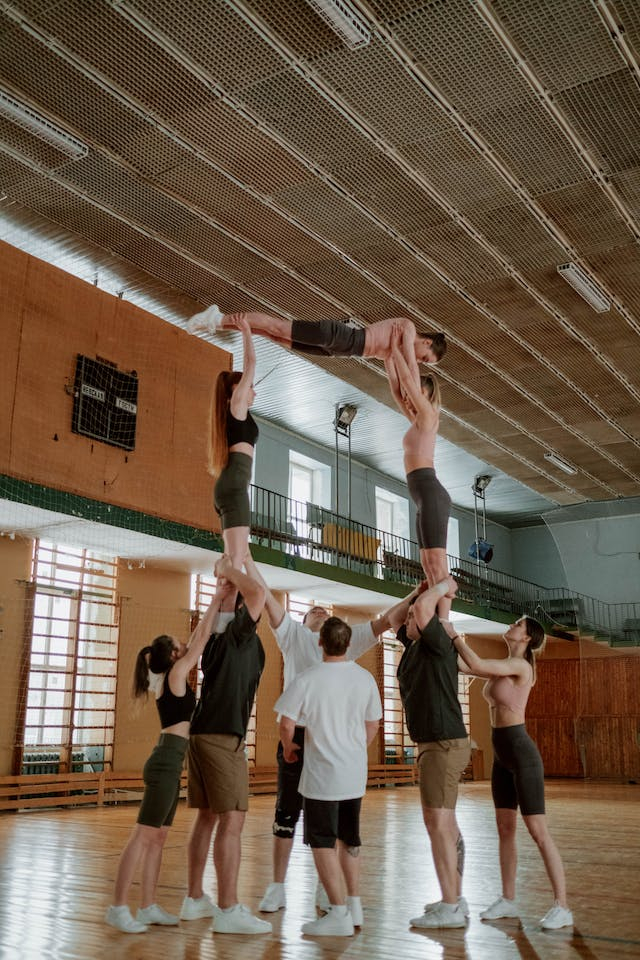
Photo by cottonbro studio via pexels 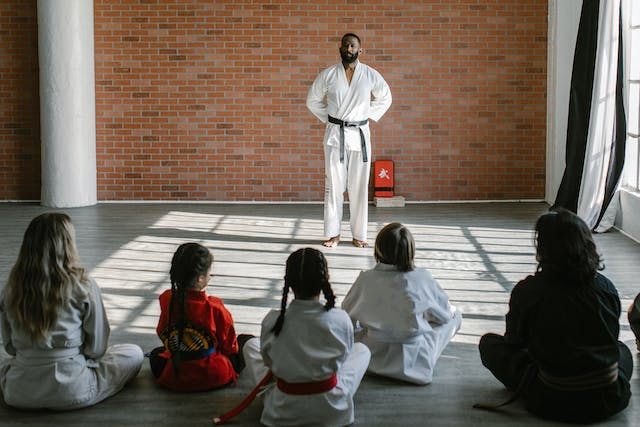
Photo by RDNE Stock project via pexels -
Essay topic: Explain why or why not: Should students have homework on weekends?
Answer:
It is the weekend, time for fun and games, but wait, homework is knocking! Should students have to complete projects on weekends, or is this a time for relaxation? Let's go into this topic and determine whether weekend homework is a friend or adversary.
First off, some say weekend homework is like a superhero training ground. It helps us practice what we learned during the week so we can become real experts. It's a bit like practicing soccer or piano, repeating helps us get better. Weekend homework also helps us be responsible. It's like a small challenge to manage our time wisely, preparing us for the bigger challenges ahead.
But hold on, others argue that weekends are meant for recharging our superpowers, not working more. After a busy week, our brains need a break. Weekends are the time to play, hang out with friends, or just chill with a good book or movie. Too much homework on weekends might turn our relaxation time into stress time.
Now, think about family time. Weekends are when families come together, right? Extra homework might take away from that. Plus, what if there's a special event or a family trip planned? Homework on weekends could feel like a homework villain spoiling the fun.
In the end, the weekend homework debate is a tricky puzzle. On one side, it helps us practice and be responsible. On the other, weekends are for recharging and spending time with family. Maybe, finding a balance is the solution, some light homework to keep our brains active but not too much to steal our weekend joy. What do you think? It's a tough call, but finding the right balance might just make everyone happy!
Photo by Jena Backus via pexels 
Photo by Andrea Piacquadio via pexels -
Essay topic: Should the school day be extended in exchange for a long weekend?
Answer:
Imagine having a longer weekend filled with adventures and extra playtime, but there's a catch, school days get a little longer. Is this trade off a good idea? Let's dive into the debate and explore whether stretching school hours is worth the promise of an extended weekend.
On one side, some argue that a longer school day means more time for exciting lessons and fun activities. It's like adding more ingredients to the school recipe for learning. With extra time, teachers can dive deeper into cool subjects, and students get a chance to become real experts in what they love. Plus, a longer school day might mean less homework at home, leaving afternoons free for hobbies and family time.
However, hold on a moment! Others say that long school days might make us feel like we're running a marathon without a finish line. Kids need time to recharge, right? A shorter school day means more time for friends, sports, and hobbies. It's like having a big bowl of ice cream after finishing your homework, it's a treat!
Now, think about the long weekend. Three whole days to play, explore, and relax! That sounds like a dream, does not it? Extended weekends could mean more family trips, visits to the park, or just chilling at home. It's a chance to recharge our superpowers before diving back into the school week.
In the end, the idea of trading a longer school day for an extended weekend is like a seesaw. On one side, it offers more learning opportunities and less homework stress. On the other, shorter days mean more time for life's adventures and much needed breaks. Perhaps, the key lies in finding a balance, a little extra time for learning and a generous dose of free time for fun. What do you think? It's a tough decision, but finding the right mix might just make school days and weekends equally awesome!
Photo by cottonbro studio via pexels 
Photo by Andrea Piacquadio via pexels -
Essay topic: Do you feel the government should dictate what you get for school lunch?
Answer:
Think about lunchtime at school, delicious smells, friends chatting, and tasty meals. But here's the thing: should the government decide what's on your lunch tray? It's a big question, and we're going to explore both sides to figure out if it's a good idea or not.
Some say having the government decide school lunches is like having food superheroes making sure we eat healthy. They set rules to make sure we get the right mix of veggies, fruits, and proteins. It's like having a balanced meal that gives our bodies the energy to learn and play. Plus, it helps everyone, no matter where they come from, get a good, nutritious lunch.
Hold on, though! Others argue that having the government decide our lunches feels a bit like someone choosing our favorite video game for us. It might not be what we really want. Kids have different tastes, right? Some might love broccoli, while others prefer carrots. Having choices makes lunchtime more enjoyable, and it's like celebrating our individual tastes.
Now, think about allergies and special diets. Everyone is unique, and some kids need specific foods for health reasons. If the government decides everything, it might not meet everyone's needs. Also, what about cultural foods? School lunch could be a chance to share and enjoy the tasty dishes that represent our backgrounds.
In the end, the government deciding school lunches is a bit like a lunchtime puzzle. On one side, it ensures we eat healthy and everyone gets a nutritious meal. On the other, having choices lets us enjoy our favorite foods and accommodates different needs. Maybe the solution is a mix, a little guidance from the government to keep us healthy and a bit of freedom to choose what makes our taste buds happy. What do you think? It's a tricky lunchtime decision, but finding the right balance might just make everyone smile during lunch!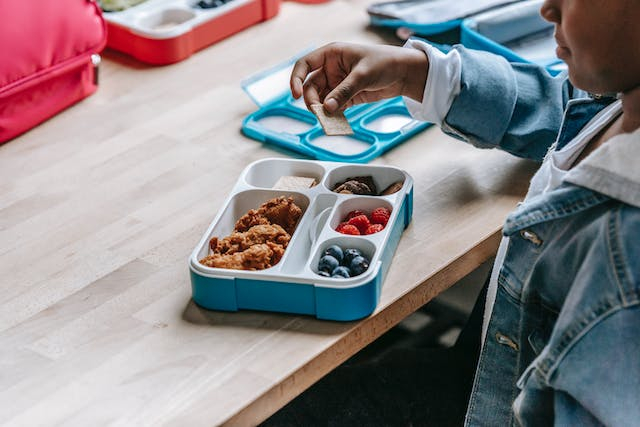
Photo by Katerina Holmes via pexels 
Photo by Katerina Holmes via pexels -
Essay topic: Do you believe brick-and-mortar schools are still necessary for today’s post-pandemic society?
Answer:
Schools where friends, teachers, and learning come together. But with everything changing, is it still crucial to have traditional brick-and-mortar schools, especially after the pandemic? Let's explore this big question and see if schools with actual buildings are still a must.
Some folks believe that brick-and-mortar schools are like magic places where learning and friendship bloom. They say it's not just about lessons but also about sharing giggles, playing at recess, and feeling the warmth of a real classroom. It's a bit like having a second home, they argue. Plus, in-person learning lets us ask questions, get instant help, and build relationships with teachers and friends.
Hold on, though! Others think that with all the cool technology we have, maybe we don't need to be inside a physical school every day. Virtual learning, they say, lets us explore topics at our own pace and connects us with students from all over the world. It's like having the whole world as our classroom. Plus, it saves time and lets us learn in comfy pajamas.
Now, think about social skills. Some say being in a real school helps us learn to work with others, solve problems together, and build teamwork superpowers. It's like having practice sessions for the real world. Virtual learning, they worry, might miss out on these important lessons.
In the end, the question of needing brick-and-mortar schools is like a puzzle. On one side, they offer a special place for learning, friendship, and in-person experiences. On the other, virtual learning opens doors to a world of knowledge and flexibility. Maybe the answer is a mix, keeping the magic of real schools and adding a sprinkle of virtual learning magic. What do you think? It's a big decision, but finding the right mix might make learning even more exciting in the future!
Photo by Pixabay via pexels 
Photo by Dids via pexels -
Essay topic: Is the student per class limit too high?
Answer:
Think about your classroom, friends, desks, and the teacher. But what if there were even more friends squeezed in? Is the number of students in each class too high? Let's dig into this question and figure out if having many classmates is a good or not-so-good idea.
Some argue that having lots of friends in class is like a big adventure. More friends mean more ideas, more games, and more fun! It's like having a bustling team, learning and growing together. With many friends, we can share thoughts and help each other out. Plus, it's a bit like a big party every day!
Others say having too many students can be like having a crowded playground, lots of chaos and not enough space. In a big class, it might be harder to hear the teacher, ask questions, or get extra help. It's like trying to play your favorite game when there are too many players, and everyone is talking at once.
Now, think about making friends. In a smaller class, it might be easier to know everyone's name and become pals. But in a big class, it could be like trying to find a specific star in the night sky, there are so many, and it's easy to feel a bit lost.
Finally, the question of whether the student-per-class restriction is excessive is a puzzle. On the one hand, having more friends means having more fun and having more diverse opinions. On the other hand, having too many classmates may make it difficult to focus and get to know everyone. Perhaps the trick is to strike a balance between having enough friends to make every day exciting and not having so many that it feels like a packed party. What are your thoughts? It's a difficult decision, but finding the proper balance might turn school into a place where study and friendship coexist!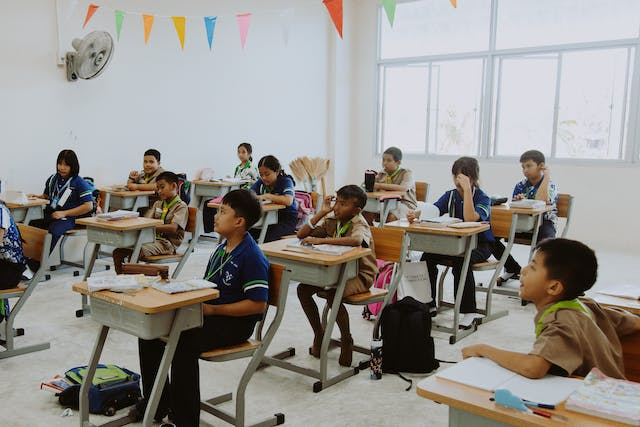
Photo by Ron Lach via pexels 
Photo by Anastasia Shuraeva via pexels -
Essay topic: Should high school students be required to take a civics exam before graduation?
Answer:
Imagine a world where everyone knows how the government works, and we all understand our rights and responsibilities. Should high school students take a civics exam before graduation to make this happen? Let's explore this question and see if it's a good idea or not.
On one side, some say taking a civics exam is like unlocking a secret code to citizenship. It helps us understand how our government functions, the importance of voting, and the rights we all share. It's a bit like having a superhero handbook for being a responsible citizen. With a civics exam, we become superheroes who know how to make our voices heard and protect our community.
But hold on, others argue that exams aren't everyone's favorite thing. Some students might feel stressed or worried about memorizing facts. They say learning about civics is essential, but maybe there are other fun and creative ways to understand it without the pressure of an exam. Learning through discussions, games, and real-life experiences could be just as effective.
Now, think about the benefits. Knowing about civics can help us be better decision-makers, participate in our communities, and stand up for what's right. It's like having a tool belt filled with skills to make a positive impact on the world. A civics exam could be a way to make sure we've got all the tools we need before stepping into the exciting journey of adulthood.
In the end, the question of whether high school students should take a civics exam is like a puzzle. On one side, it ensures we have the knowledge to be active and responsible citizens. On the other, exams might not be everyone's cup of tea, and there could be other enjoyable ways to learn about civics. Maybe the solution is a mix, making civics education engaging and fun, with a bit of testing to ensure we're equipped with the superhero knowledge we need. What do you think? It's a big decision, but finding the right balance might create a world filled with informed and empowered citizens!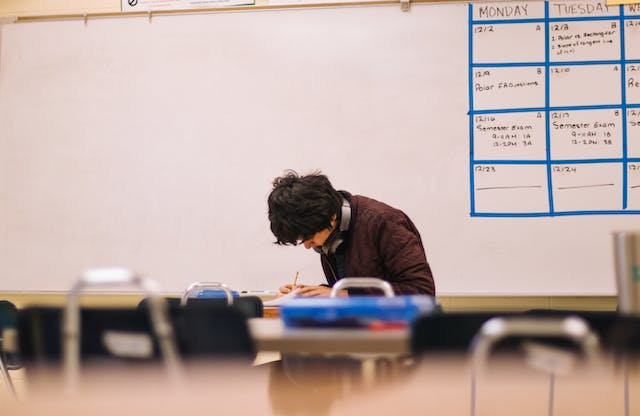
Photo by Jeswin Thomas via pexels 
Photo by Andrea Piacquadio via pexels -
Essay topic: Should school security be improved?
Answer:
School, our second home where friendships blossom and knowledge grows. But what about safety? Should we enhance it to make our school an even more secure place? Let's delve into the importance of striking the right balance in improving school security.
Some folks believe that beefing up school security is akin to wrapping a protective shield around us. It's not about turning our school into a stern fortress but ensuring that everyone inside feels secure. Implementing measures such as cameras and controlled entrances can help keep out unwelcome visitors and create an atmosphere where a superhero squad is always ready to maintain our safety.
On the flip side, some worry that excessive security might cast a shadow over the friendly and inviting nature of the school. Striking a balance is crucial—feeling safe without compromising the warm and welcoming environment. School should remain a space where learning and laughter prevail, without the constant feeling of being under surveillance.
Now, consider unexpected situations. Emergencies happen, right? Improved security measures, like conducting fire drills and having quick communication systems, prepare us for the unexpected. It's akin to having a safety net, a plan in place to guide us through unforeseen circumstances and ensure that everyone knows what to do.
So, should we enhance school security? It's like fine-tuning a lock to find the perfect mix. Safety is paramount, yet we also yearn for the friendly ambiance that makes school special. Perhaps, the solution lies in a thoughtful blend, implementing security measures to keep us safe without transforming our school into an imposing fortress. What do you think? Striking this balance might render our school the safest and friendliest haven for everyone, fostering an environment where both security and warmth coexist harmoniously!
Photo by JOHNY REBEL, the Explorer Panda via pexels 
Photo by Pixabay via pexels -
Essay topic: Should students be allowed to use smartwatches during examinations?
Answer:
Exams, the moments when our brains work hard, and pencils dance on paper. But what if we could bring smartwatches into the mix? Should students be allowed to use these tiny gadgets during exams? Let's explore both sides of this debate and figure out whether it's a good idea.
On one side, some argue that using smartwatches during exams is like having a superpower. Smartwatches can store information, set reminders, and help us manage time better. It's like having a tiny assistant on our wrist, making sure we remember all those tricky formulas and important dates. With smartwatches, we become exam superheroes, always prepared and ready to tackle any question.
However, hold on! Others say that using smartwatches is a bit like having a cheat code in a video game. Exams are about testing what we know, not what our smartwatches know. Relying on these gadgets might not help us learn and understand things better. It's like trying to win a race with someone else doing the running for us.
Now, think about fairness. What if not everyone has a smartwatch? It might create an uneven playing field. Exams should be a fair challenge for everyone, right? Allowing smartwatches could make things a bit like a puzzle with missing pieces.
In the end, the question of using smartwatches in exams is like solving a riddle. On one side, it feels like having a study buddy on our wrist, helping us remember and manage our time. On the other, relying on smartwatches might not be fair or help us truly understand what we're learning. Maybe the solution is finding a balance, smartwatches for everyday help but putting them aside during exams. What do you think? It's a tricky choice, but finding the right balance might make exams challenging and fair for everyone!
Photo by Thirdman via pexels 
Photo by Gülşah Aydoğan via pexels































